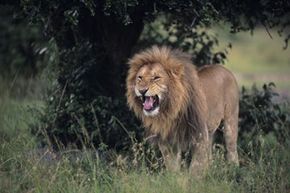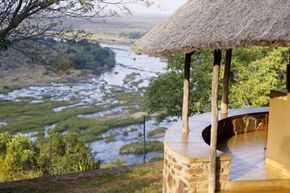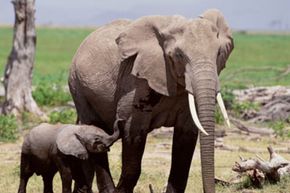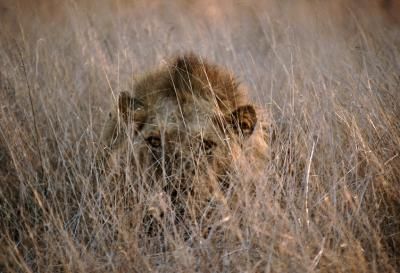Your guide wakes you at the crack of dawn, and you and your groggy traveling companions leave your tents to pile into the back of a Range Rover bound for the bush. Off in the distance you see a herd of African elephants on the low grass near a watering hole and the whole car goes quiet as you try to get closer and snap some photos without disturbing these magnificent creatures.
That's the magic of the safari. Africa is home to more than 800 species of animals, some of which -- like the African elephant -- you won't find naturally anywhere else in the world [source: Morgan-Shott]. Nature or hunting enthusiasts often go on safari hoping to sight the Big Five: elephant, rhinoceros, cape buffalo, lion, and leopard, but that list only scratches the surface of what you'll see [source: East African Wildlife Safaris]. Zebras, wildebeests, warthogs, hyenas, giraffes and antelopes abound, depending on what part of Africa you choose.
Advertisement
When you're planning a safari, step one is sorting out what wildlife and landscapes you'd most like to see. The two most popular regions for safari are East Africa, especially Kenya and Tanzania and Southern Africa, which includes South Africa, Zimbabwe, and Botswana [source: Morgan-Shott]. Egypt's Western Desert in North Africa is also becoming a more popular safari destination [source: Frommer's].
One of the big draws to East Africa is the game migration between the Maasai Mara in Kenya and the Serengeti in Tanzania. If you're looking to spot herds of zebras or wildebeests, East Africa is your best bet. East Africa also offers the chance to climb Mount Kilimanjaro (the highest mountain in Africa) and classic scenes of open savannas. When you safari in East Africa, you're likely to be staying in tourist lodges and traveling on daily excursions to check out wildlife in a minivan with a pop up roof [source: Eyes on Africa].
The wildlife in Southern Africa is similar to East Africa, but if it's elephant-spotting that you're after, Southern Africa is the better choice: It's home to more than 80 percent of Africa's elephant population [source: Eyes on Africa]. The topography here is very different, too. Known for its desert areas and its coastlines, it's also home to Victoria Falls. Southern Africa is a bit less touristy, and you're likely to be camping in luxury tents and checking out the terrain and the wildlife in a Land Rover [source: Eyes on Africa].
Advertisement





